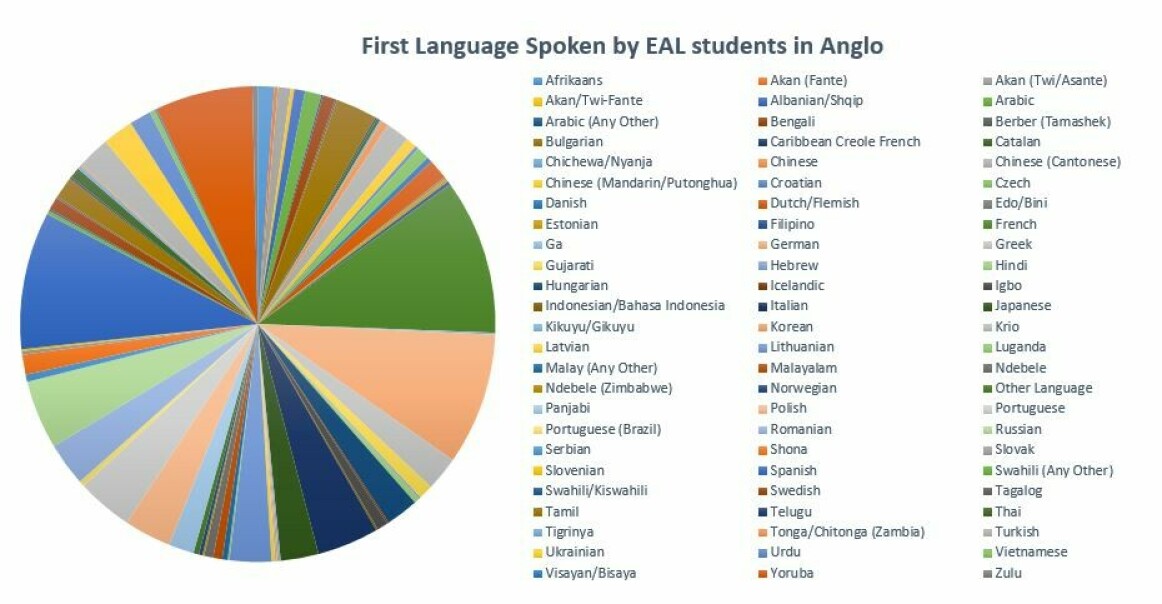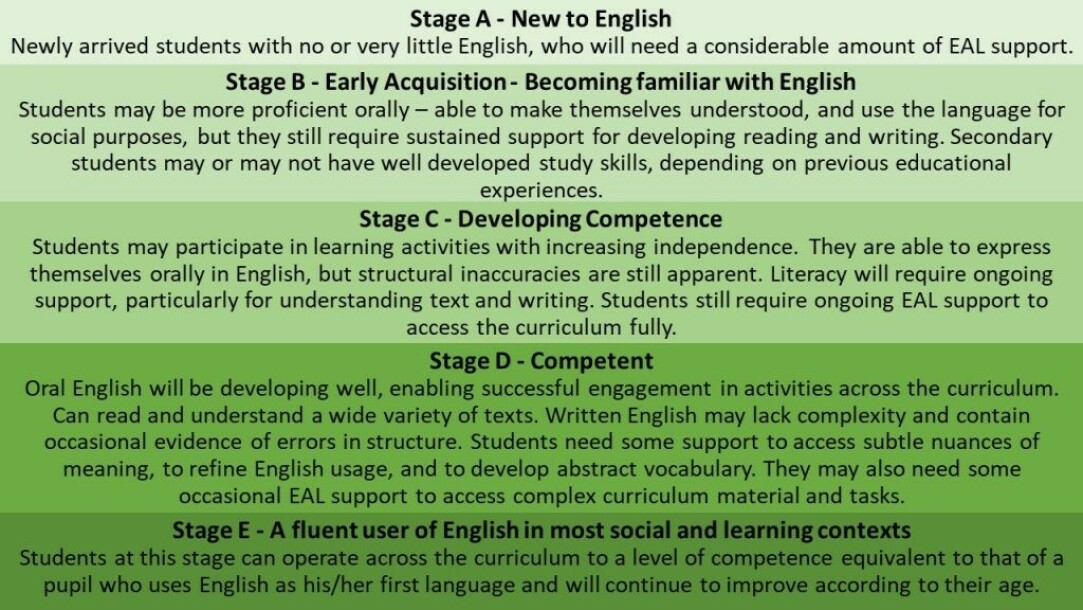English as an Additional Language (EAL)
The EAL department caters for the needs of students for whom English is an additional language. These learners include a wide range of students from diverse backgrounds, from total beginners to those with a high level of proficiency in English.
There are over 830 students in the Anglo whose first language is not English. Between them they speak over 75 different languages.

The overall percentage of bilingual students is an amazing 54% in our school. However, the students that we intervene with are newly arrived students in the UK or in their early stages of English language acquisition. The vision of the EAL Department at Anglo is to empower students to experience success in all areas of their school life.
Intent
We aim to ensure that all EAL pupils are able to:
- Use English confidently and competently
- Use English as a means to learning across the curriculum
- Where appropriate, make use of their knowledge of other languages
Implementation
All new admissions are assessed on arrival. Based on their needs, students are offered EAL support. This could be 1-2-1 or in small groups. This information is made available to all teaching staff.
Because we have such a diverse cohort, we often find new students a ‘buddy’ that shares the same first language to help them settle in. This helps the new students’ integration into the Anglo family and explain the day-to-day workings of the school etc.
The ‘buddy’ may have also previously arrived at the Anglo as an EAL learner and, therefore, has an understanding of the worries and concerns new starters have.
EAL support is given during the school day. Any withdrawal of EAL learners from a mainstream class is for a specific purpose, and linked to the schemes of work delivered within the wider mainstream curriculum.
The EAL department works closely with parents and carers by sharing resources to support students.
Assessment
Students make progress in acquiring English as an additional language in different ways and at different rates. Broad stages in this development are identified below as descriptors to be applied on a ‘best–fit‘ basis.
Based on students’ performance across the four skills of Speaking; Listening; Reading and Writing, they could be working at stage A- E. Progression from stage A to stage E can take up to 10 years and individuals are likely to show characteristics of more than one ‘stage’ at a time.
Impact
Learners improve their attainment and confidence in reading across the Anglo curriculum. Students move quickly and seamlessly from their beginning stage through to Stage E and are able to access the curriculum and the highest GCSE and AB/IB exam grade in the same way as their English speaking classmates.

Any queries with regards to the EAL provision should be directed to Mrs McDermott.
